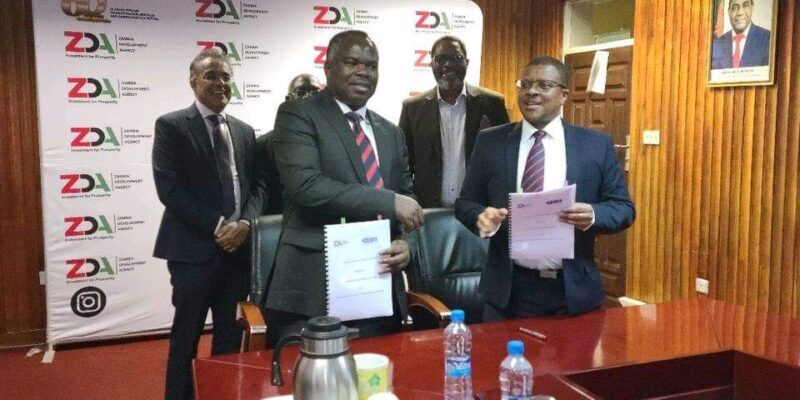Zambia and Eswatini Strengthen Economic Ties with Strategic Partnership
The Zambia Development Agency (ZDA) and the Eswatini Investment Promotion Authority (EIPA) have reinforced their commitment to deepening economic cooperation through a newly signed Memorandum of Understanding (MoU).
The agreement sets the stage for enhanced investment and trade relations between the two nations, focusing on institutional capacity-building and creating business linkages.
Key areas of collaboration include investment promotion, trade facilitation, and the exchange of critical information on trade policies, regulations, and opportunities.
The MoU also prioritizes fostering connections among small and medium-sized enterprises (SMEs) in Zambia and Eswatini, encouraging local exporters to access new markets. Joint initiatives will include technical expertise exchange, training programs, and capacity-building efforts aimed at mutual economic growth.
During the signing ceremony, ZDA Board Chairperson Biemba Maliti emphasized the importance of strategic implementation. He highlighted opportunities to strengthen private sector engagement through initiatives like investment summits, trade missions, and clearer cross-border investment frameworks.
“This partnership allows us to enhance bilateral trade agreements and attract mutual investment,” said Professor Maliti, pointing to the economic strengths of both countries and the potential for synergy.
ZDA Director General Albert Halwampa identified key sectors for collaboration, including agriculture, tourism, energy, and infrastructure. “This MoU demonstrates our shared commitment to improving trade and investments between our countries and across the region,” he noted.
EIPA Board Chairperson Theo Hlophe praised the agreement as a pivotal step toward fostering broader country-to-country relationships.
EIPA CEO Sibani Mngomezulu echoed this sentiment, describing the partnership as a path to “seamless” cooperation. He expressed optimism that Zambia and Eswatini could leverage their strategic land-linked positions to strengthen trade and investment ties.
58 total views , 1 views today





